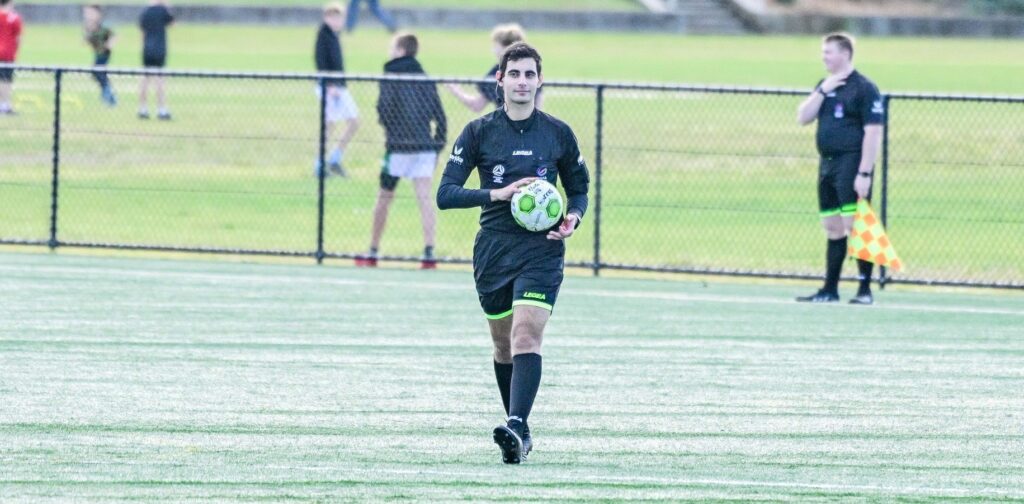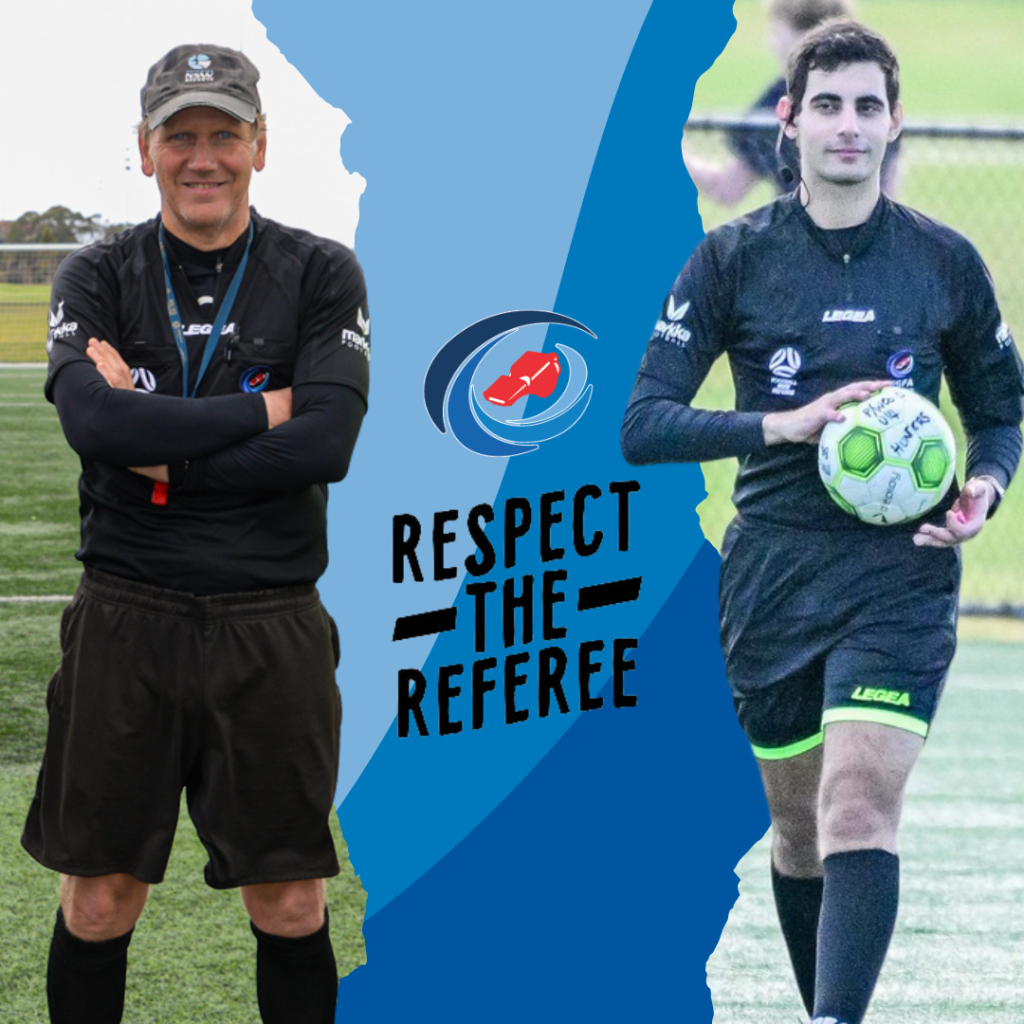What’s Respect the Ref?
Whether it be an ESFA referee, club referee or even a parent, referees are fundamental to the smooth running of the game.
Through their passion for the game, they give their time to ensure the laws of the game are applied and so that you can enjoy the game. Unfortunately, referees occasionally face unfair treatment while officiating a match. We can all play a role in showing the referee respect and improve the game that we all enjoy. So, what’s stopping you? Are you in?
As an initiative to grow affinity between the referees and players in ESFA we have been speaking with some of our referees to get to know them. Join us as we get to know the person behind the whistle.

Daniel Alter, Referee Level 1, Referee Assessor Level 3
How long have you been a referee?
2023 will be my 10th year as a referee
Why did you become a referee?
I wanted to be actively involved in football if I wasn’t good enough to play, so I became a referee. The extra pocket money was nice at first too. Turns out, I really liked it, and decided to keep going, pursuing to referee higher levels.
What is the best thing about being a referee?
Building relationships with everyone else in the community. We all have one thing in common, the love for the game. Doesn’t matter how good of a player you are, or how little experience a referee may have, we all do it for the love of the game, and we’re all mates at the end of the day.
What has been your toughest moment in your refereeing career?
The toughest moment is when I get an injury, and I am side-lined for a period of time. I hate not being involved, and when an injury forces me off the park, it’s another battle to get back up to fitness again. I could be on a good run of form, feeling better than ever, and I’ll get a sudden muscle strain or a pull and forced to watch on from the side-line.
What has being a referee given you?
It has helped me to develop into the person I am today, with more confidence and growth in my personality. I have also been able to travel across Australia and overseas and able to referee abroad, which has allowed me to meet and to officiate former, current, and future professional players.
Do you see yourself as a role model for others who are looking to get into refereeing?
I do. I’m always promoting refereeing where I can, and trying to get people involved. The more referees we have, the better for our game.
What are your top three tips for being a referee?
Be enthusiastic. Always bring a positive attitude towards a game. Bringing good energy will make it a better game for yourself.
Communicate. Don’t be afraid to talk to the players. It reflects your personality and adds a more personal touch.
Be confident. Don’t be afraid to make the tough calls. Don’t let the others influence you. You should know the rules, and you should call it as you see it.
If you could tell players, officials, and spectators one thing, what would it be?
Don’t yell at us. We’re trying our best and call what we see, with every referee having varying levels of experience. Yelling does not help and can actually make your game worse than it should be. Some referees will give you an equal amount of back chat they receive, and you’re gonna feel the burn.

Lex Van Santen, Referee Level 3
How long have you been a referee?
15 years
Why did you become a referee?
I started playing football again when I was around 40 years old, after a 10-year break focusing on raising a family. A few years into my second spell as a player I noticed more and more that I was an angry player which resulted in receiving way too many yellow cards and occasionally got sent off. I was also coaching my kids and felt something needed to change to improve both my image and temperament, it’s not a good look and feeling to get sent off whilst your kids witness that. I also noticed that the association was short on referees so those two needs came together and I did the course and the rest is history!
What is the best thing about being a referee?
The best thing about being a referee is being amongst it all, the sport you love, the players you get to know, the behaviour you recognise and the fact that you can’t lose but only win by doing your best to be fair to both teams.
What has been your toughest moment in your refereeing career?
I had to send a player off as he swore to me in Dutch pretty badly. I awarded a penalty against his team, he wasn’t aware I was Dutch like him so vented his frustration by swearing in Dutch to me. He was a really nice guy (I thought until then) and that made it hard to both send him off as well as stomaching the insult.
What has being a referee given you?
I’m a pretty social sort of guy but refereeing has provided me with another network of people who are decent, fair and a good laugh (well most of them). Also, the fact that you get paid for doing something you love doing is a bonus. Every time I take to the field there is someone I know and that gives you that feeling of (football) community.
Do you see yourself as a role model for others who are looking to get into refereeing?
I do see myself as a role model for both young and older players. Friends my age always ask me questions regarding rules or certain incidents in televised games, they must think I know it all, but really they see me as a bit of an expert. I love mentoring the young referees, something I started doing last year after completing the Assessor course.
What are your top three tips for being a referee?
Try to remain calm at all times, try to identify the one player (or more) who causes friction during a game and try as much as you can to have a positive demeanour.
If you could tell players, officials and spectators one thing, what would it be?
Take a deep breath, it’s not the World Cup, we are here to enjoy ourselves!
We hope that by reading this and getting an insight into the person behind the whistle, we may encourage players, coaches and spectators to show more appreciation to our referees so that we may keep growing our referee community.

